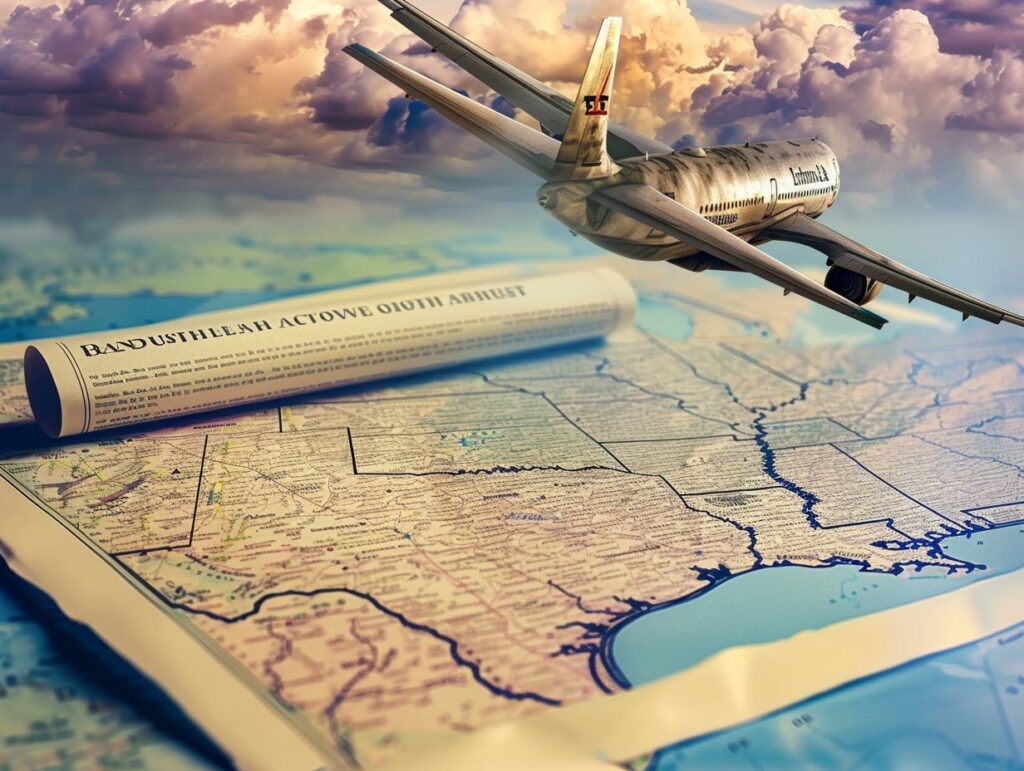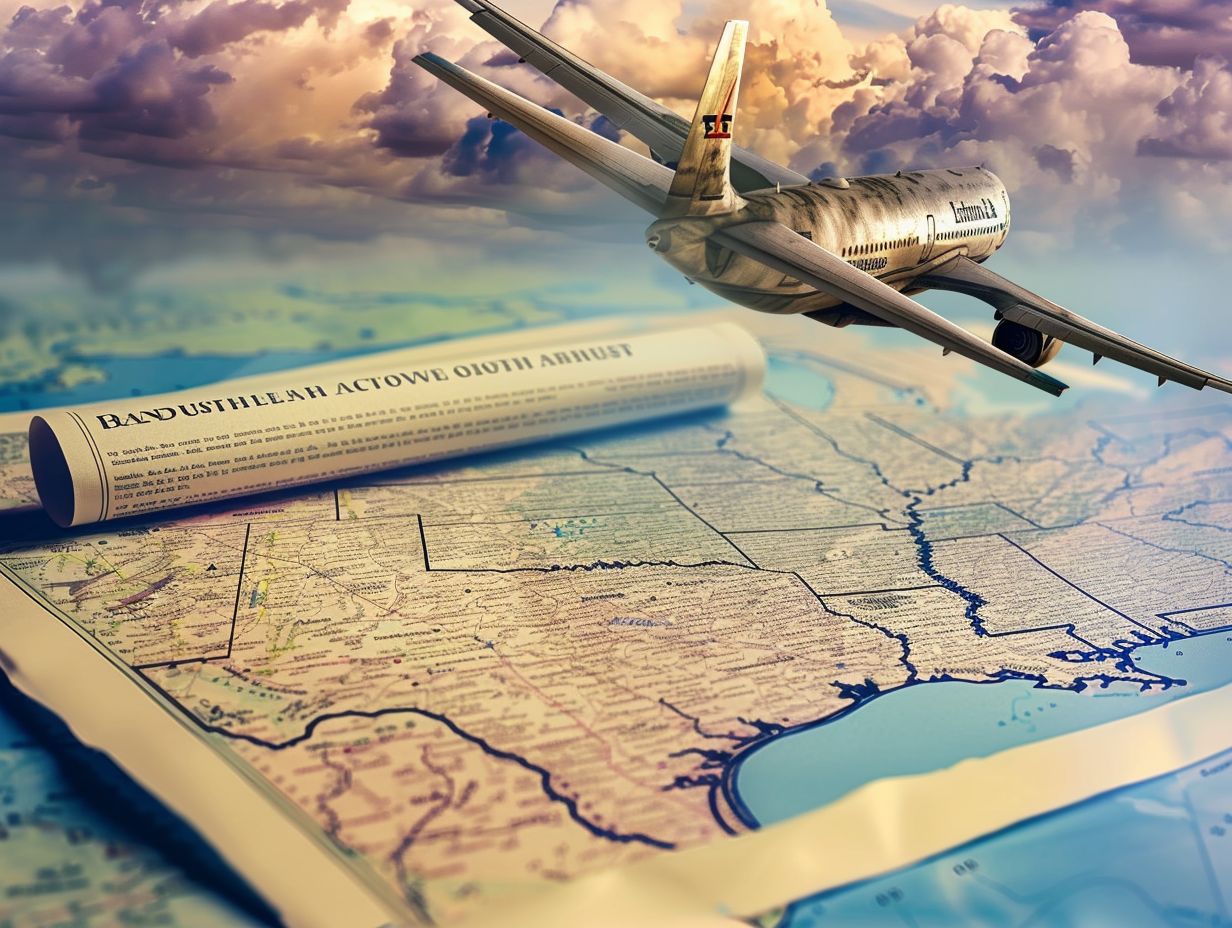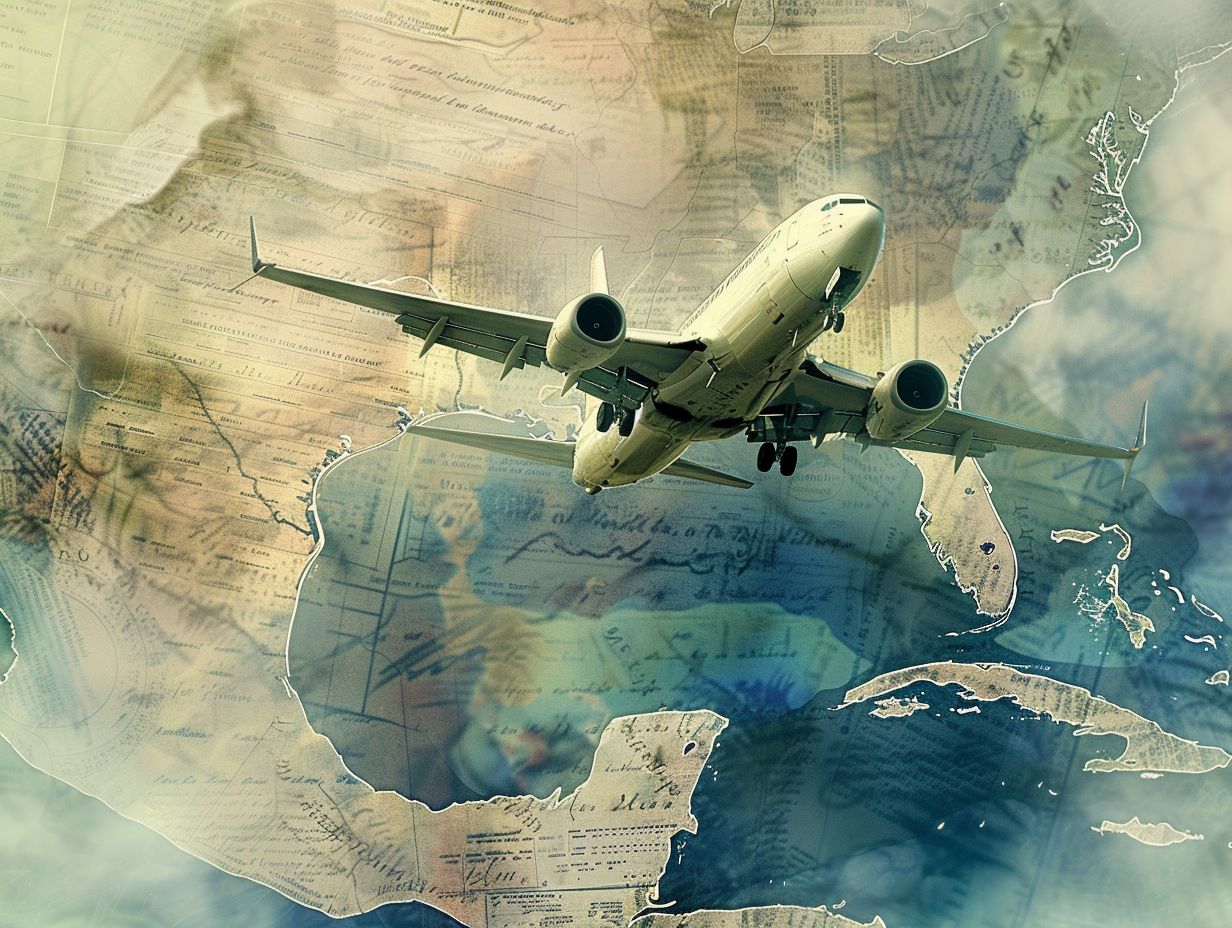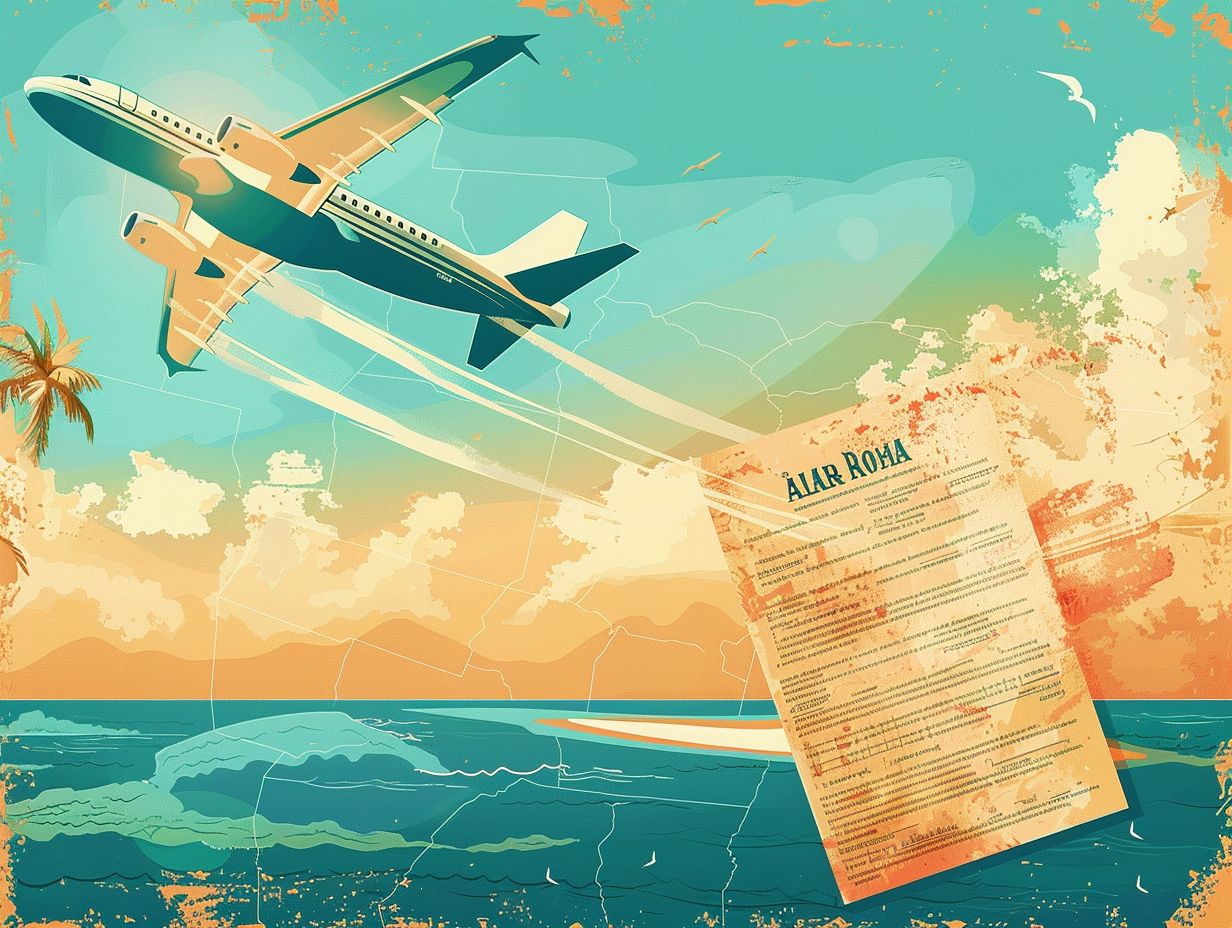Aviation accidents can be devastating and complex, often resulting from human error, mechanical failure, or adverse weather conditions. In Florida, knowing the steps to take after an aviation accident is crucial.
From seeking medical attention to documenting the accident scene, this article covers everything you need to know about handling aviation accident claims in the Sunshine State.
Whether you are pursuing a personal injury claim or seeking compensation for wrongful death, understanding the process and working with the right aviation accident attorney can make all the difference in recovering damages.
What are the Common Causes of Aviation Accidents?
Understanding the common causes of aviation accidents is essential for improving aviation safety. Organizations such as the National Transportation Safety Board and the Federal Aviation Administration dedicate efforts to investigate incidents and enhance regulations. The primary causes typically involve pilot error, mechanical failure, and adverse weather conditions, which largely contribute to most aviation mishaps.
1. Human Error
Human error, especially pilot error and mistakes made by air traffic control, is a significant cause of accidents in commercial aviation. These errors can have severe consequences, as seen in the case of Eastern Air Lines Flight 401 in 1972. The crew was distracted by a faulty landing gear indicator light, leading them to overlook the disengaged autopilot. This resulted in the aircraft crashing into the Florida Everglades, causing numerous fatalities.
To prevent such tragedies, training is essential in preparing pilots and controllers to effectively handle various scenarios. Implementing clear communication protocols between the cockpit and air traffic control can help reduce misunderstandings and errors that may occur during flight operations.
2. Mechanical Failure
Mechanical failure, which can involve critical issues with aircraft components, has been a significant factor in numerous aviation accidents, such as the unfortunate incidents involving Boeing aircraft operated by Ethiopian Airlines and Indonesian Lion Air.
These incidents have shed light on various types of mechanical failures that can occur in aviation, ranging from engine malfunctions to structural defects. Detecting these issues is crucial to ensure the safety of passengers and crew.
To address this, advanced monitoring systems and regular maintenance checks are employed to identify potential problems before they escalate. For instance, following the investigations into the Boeing accidents, the National Transportation Safety Board implemented stricter guidelines and recommendations to prevent similar failures in the future.
3. Weather Conditions
Adverse weather conditions, often worsened by climate change, are an important factor in the incidence of aviation accidents.
Thunderstorms, characterized by strong winds and lightning, present a significant risk to aircraft safety as pilots navigate through turbulent weather and unpredictable circumstances.
The accumulation of ice on wings can result in loss of lift and control, leading to hazardous situations during flight. Turbulence, whether caused by clear air or mountain waves, can cause sudden and severe disturbances, posing challenges even for seasoned pilots.
The impact of climate change on weather patterns has resulted in more frequent and intense storms. This underscores the importance for the aviation industry to implement preventive measures and adopt technological advancements to ensure safer travel for both passengers and crew.
What are the Steps to Take After an Aviation Accident?
Following an aviation accident, it is crucial to take immediate and proper steps to ensure safety, compliance, and the preservation of evidence. Guidelines are typically provided by authorities such as the National Transportation Safety Board and the Federal Aviation Administration.
1. Seek Medical Attention
The primary objective following an aviation accident is to promptly seek medical attention for any injuries sustained. This immediate medical care is critical due to the common occurrence of various injuries in aviation accidents, such as traumatic brain injuries, fractures, burns, and spinal cord injuries.
First responders and medical professionals are instrumental in evaluating these injuries, stabilizing the affected individuals, and administering essential treatment either on-site or while en route to medical facilities.
Acquiring comprehensive medical records from these initial assessments is vital for potential legal claims stemming from the incident, as it aids in determining the severity of injuries and the necessary medical interventions.
2. Contact Authorities and Report the Accident
It is important to reach out to the authorities, such as the National Transportation Safety Board and the Federal Aviation Administration, to report the accident and ensure a thorough investigation.
Upon alerting these organizations, they have a crucial role in conducting detailed inquiries to determine the cause of the accident. The National Transportation Safety Board (NTSB) is responsible for investigating civil aviation accidents in the United States, with the goal of improving safety standards and preventing future incidents.
Similarly, the Federal Aviation Administration (FAA) oversees regulatory compliance and may offer guidance on adhering to aviation laws and protocols. Adhering to these regulatory requirements is crucial to maintain safety standards and facilitate a transparent investigation process.
3. Document the Accident Scene
It is crucial to document the accident scene meticulously to preserve evidence that may be essential for investigations and legal proceedings. Photographing the scene from multiple angles helps provide a comprehensive view of the area, capturing details that may be missed at first glance.
Noting environmental conditions such as weather, lighting, road conditions, and traffic patterns can offer valuable context for understanding how the accident occurred. Recording witness statements while the details are fresh in their minds can play a crucial role in corroborating or clarifying aspects of the incident.
This documentation serves as a detailed record that can aid in insurance claims, disputes, and court proceedings, ensuring that all pertinent information is accurately captured and preserved.
4. Gather Evidence
It is essential to gather evidence following an aviation accident, and it is often recommended to do so with the assistance of a knowledgeable aviation accident attorney. These professionals play a critical role in ensuring that all required evidence, such as flight data, maintenance records, and eyewitness accounts, is collected promptly and accurately.
Flight data retrieved from black boxes, detailed maintenance logs outlining the aircraft’s history, and statements from witnesses can offer valuable insights into the events that occurred.
The attorney’s understanding of aviation law enables them to comprehend the complexities of these documents and the importance of each piece of evidence. Through collaboration with investigators and experts, they can assist clients in navigating the legal procedures involved in the collection and preservation of evidence to construct a robust case.
What are the Types of Aviation Accident Claims?
Aviation accident claims are typically classified into personal injury claims and wrongful death claims, each of which may necessitate specialized legal support from a knowledgeable aviation accident attorney or a Florida aviation lawyer.
1. Personal Injury Claims
Personal injury claims following an aviation accident often concentrate on pursuing compensation for injuries suffered by survivors.
The compensations available in personal injury claims may encompass medical expenses, lost wages, pain and suffering, and occasionally, punitive damages. Common injuries resulting from aviation accidents can vary from fractures and burns to spinal cord injuries and traumatic brain injuries.
These injuries can have enduring effects on a survivor’s physical health, emotional well-being, and capacity to work or participate in daily activities. An experienced aviation accident attorney is essential in navigating the legal intricacies of such claims and supporting for maximum compensation on behalf of the survivors.
2. Wrongful Death Claims
Wrongful death claims are filed by the families of individuals who died in an aviation accident in Florida. They seek compensation for their loss with the assistance of a Florida aviation lawyer.
Navigating the legal process for wrongful death claims can be intricate and intimidating for families coping with the aftermath of such tragedies. A Florida aviation lawyer can offer vital guidance in comprehending the complexities of initiating a wrongful death claim and ensuring that all required steps are executed within the specified timeframes.
In these instances, the compensation sought by the affected families may cover expenses such as medical costs, funeral expenses, loss of future income, and pain and suffering. The emotional and financial impact of losing a family member in an aviation accident can be immense, underlining the importance of a knowledgeable attorney in obtaining the rightful compensation.
How to File an Aviation Accident Claim in Florida?
Submitting an aviation accident claim in Florida necessitates meticulous compliance with Florida law and typically entails several steps, such as seeking advice from an aviation accident attorney or a Florida aviation lawyer to guarantee correct adherence to legal protocols.
1. Consult with an Aviation Accident Attorney
The initial step in initiating an aviation accident claim involves seeking advice from a seasoned aviation accident attorney or Florida aviation lawyer who can assist in navigating the legal procedure.
This initial consultation with legal counsel brings various advantages, including obtaining a clear comprehension of your rights, legal alternatives, and likely outcomes.
A competent lawyer will evaluate the specifics of your case, such as the accident circumstances, liability, and damages suffered. They will offer valuable guidance on the optimal approach to pursue in seeking recompense for your losses.
It is essential to choose the right attorney, so consider someone with expertise in aviation law, a history of successful cases, and strong communication abilities to ensure a seamless process.
2. Gather Evidence and Documentation
Collecting all pertinent evidence and documentation is essential for constructing a robust aviation accident claim under Florida law.
This evidence encompasses critical items like flight records, maintenance logs, and medical reports. Obtaining these documents can be a challenging and time-consuming process.
An experienced aviation accident attorney is skilled at navigating these intricacies and can help with gathering, organizing, and analyzing all essential evidence. By collaborating with a knowledgeable attorney, individuals can guarantee that every crucial piece of information is evaluated and utilized effectively in their claim, enhancing the likelihood of a successful outcome in accordance with Florida law.
3. File a Claim with the Appropriate Parties
Submitting a claim involves providing detailed documentation and evidence to the relevant parties, a procedure that is best handled with the help of an aviation accident attorney familiar with Florida law.
The process of submission typically commences with the collection of medical records, witness statements, accident reports, and other relevant information. These documents are essential for insurance companies and regulatory bodies to evaluate the claim’s validity.
It is crucial to verify that all information supplied is precise and comprehensive to bolster the case. Attorneys play a critical role in organizing and presenting this documentation clearly and persuasively. Their expertise not only ensures adherence to legal standards but also enhances the likelihood of obtaining fair compensation for the damages suffered.
4. Negotiate a Settlement or Pursue a Lawsuit
Depending on the circumstances, an aviation accident attorney may negotiate a settlement with the involved parties or pursue a lawsuit to secure the compensation deserved under Florida law.
Negotiating a settlement in an aviation accident case involves a strategic approach to reach a resolution satisfactory to all parties. Factors such as the extent of injuries, liability issues, and insurance coverage can heavily influence the settlement discussions. The attorney plays a crucial role in advocating for the client’s rights and ensuring fair compensation for damages.
In some cases, when negotiations fail to produce a reasonable result, pursuing litigation may become necessary to seek justice through the legal system.
What Damages Can Be Recovered in an Aviation Accident Claim?
In an aviation accident claim, different types of damages can be recovered, such as compensation for medical expenses, lost wages, pain and suffering, and wrongful death damages.
1. Medical Expenses
The purpose of a medical expenses claim is to cover the costs associated with medical treatment and rehabilitation needed as a result of injuries sustained in an aviation accident.
These expenses may encompass various items such as hospital bills, medication costs, surgical expenses, and charges for long-term rehabilitation services. To initiate a claim for these expenses, individuals must meticulously record each expense accrued due to the accident.
This record-keeping process should involve keeping receipts, medical reports, and any other pertinent paperwork that clearly details the medical services obtained.
Seeking reimbursement for these expenses typically involves submitting a comprehensive claim to the appropriate authorities or insurance providers. This claim submission should include all necessary documentation to substantiate the claim and ensure that the individual obtains the financial support required for their recovery.
2. Lost Wages
Lost wages claims are intended to compensate for the income lost as a result of being unable to work following an aviation accident.
Calculating lost wages involves determining the amount of income the individual would have earned if they were able to work. This process includes assessing past earnings through the examination of pay stubs, tax returns, and employment contracts.
Future earnings are typically estimated based on factors such as the individual’s occupation, experience, and potential career advancements. Detailed employment records, including work schedules, performance evaluations, and any promotions or salary increases, are essential in substantiating these claims and establishing the individual’s earning capacity before the accident occurred.
3. Pain and Suffering
Compensation for pain and suffering addresses the physical pain and emotional distress experienced as a result of the aviation accident. Factors such as the severity of injuries, duration of recovery, and long-term impact on quality of life play significant roles in determining the compensation amount for pain and suffering.
Documenting these non-economic damages often involves medical records, expert testimonies, and psychological evaluations to provide a comprehensive overview of the victim’s suffering. Keeping a pain journal can help track the daily struggles and emotional toll, offering tangible evidence of the impact.
Ultimately, the goal is to present a compelling case that vividly illustrates the extent of the pain and suffering endured by the individual.
4. Wrongful Death Damages
Wrongful death damages provide compensation to the families of victims who lost their lives in an aviation accident.
Loss of consortium is a type of wrongful death damage that accounts for the deprivation of the comfort, companionship, and emotional support the deceased would have provided to their family members. It recognizes the intangible value of relationships that have been severed due to the loss.
Funeral expenses are another aspect of wrongful death damages, covering the costs associated with the burial or cremation of the deceased.
Loss of future earnings considers the income the deceased would have earned over their lifetime if the accident had not occurred.
To pursue these claims, certain legal requirements must be met, such as proving that the death was caused by the negligence or wrongful act of another party. The process involves filing a wrongful death lawsuit on behalf of the deceased’s beneficiaries, who are typically close family members.
Gathering evidence, such as medical records, witness statements, and expert testimonies, is crucial in establishing the liability of the responsible party and determining the extent of damages suffered by the family.
How to Choose the Right Aviation Accident Attorney in Florida?
Selecting an aviation accident attorney in Florida is important to ensure that you have access to quality legal representation and improve your chances of receiving fair compensation.
When looking for a proficient attorney to handle aviation accident cases, it is important to assess their experience in dealing with similar cases. It is advisable to seek out a lawyer who specializes in aviation law, especially the detailed regulations specific to Florida.
Client feedback and testimonials can also provide useful information about the lawyer’s track record and approach to cases. An attorney with a good understanding of Florida aviation law can effectively navigate complex legal procedures, enhancing the likelihood of a positive outcome for your case.
Frequently Asked Questions
What steps should I take to handle an aviation accident claim in Florida?
To handle an aviation accident claim in Florida, you should:
- Report the accident to the appropriate authorities, such as the Federal Aviation Administration (FAA) and the National Transportation Safety Board (NTSB)
- Document the accident scene, including taking photos and collecting witness statements
- Seek medical attention for any injuries sustained
- Contact your insurance company and inform them of the accident
- Consult with a personal injury attorney for legal guidance and representation
Who can I file an aviation accident claim against in Florida?
You can file an aviation accident claim against the responsible parties, such as:
- The airline or aircraft operator
- The manufacturer of the aircraft or its parts
- The maintenance company responsible for maintaining the aircraft
- The pilot or crew members, if their negligence contributed to the accident
- Any other party whose actions or negligence played a role in the accident
What damages can I recover in an aviation accident claim in Florida?
You may be entitled to recover various damages in an aviation accident claim, including:
- Medical expenses, both current and future
- Lost wages and loss of earning capacity
- Pain and suffering
- Emotional distress
- Property damage, such as damage to personal belongings
- Punitive damages, if the responsible party’s actions were particularly reckless or intentional
What is the statute of limitations for filing an aviation accident claim in Florida?
The statute of limitations for filing an aviation accident claim in Florida is typically two years from the date of the accident. However, this time limit may vary depending on the specific circumstances of your case, so it is best to consult with an attorney as soon as possible to ensure you do not miss any important deadlines.
Can I still file an aviation accident claim if the victim has passed away?
Yes, you can still file an aviation accident claim on behalf of a deceased victim. This is known as a wrongful death claim and can be filed by the victim’s surviving family members, such as their spouse, children, or parents. It is important to note that the statute of limitations for wrongful death claims in Florida is two years from the date of the victim’s death.
Do I need a lawyer to handle an aviation accident claim in Florida?
While it is not required by law to have a lawyer handle your aviation accident claim in Florida, it is highly recommended. Aviation accident claims can be complex and involve multiple parties, and having a knowledgeable and experienced attorney by your side can greatly increase your chances of receiving fair compensation for your injuries and losses. A lawyer can also handle all communication and negotiations with the responsible parties and their insurance companies, allowing you to focus on your recovery.



























Rate this article:
Average rating 0 / 5. Vote count: 0
No votes so far! Be the first to rate this post.
No Comments yet!